Found 110 resources.
0
0
0
Puerto Rico faces enormous challenges due to its history as a colony, the state of its finances, and the devastation caused by Hurricane Maria and the US response to it. This has created a will to rebuild the island’s economy in line with a more community-owned vision. In this webinar, we hear from a number of people involved in and leading that effort.
Topics: Asset building, Community development, U.S. Territories
 Shared by Housing Is
on May 20, 2019
Shared by Housing Is
on May 20, 2019 0
0
0
Decades of policy choices and insufficient public and private investment have made the infrastructure needs of these communities acute, especially in many communities of color where past policy choices affected by racism, combined with continuing racial bias and discrimination, have resulted in a lack of needed economic resources.
Topics: Community development, Education, Housing, Legislation & Policy, Low-income
 Shared by Housing Is
on May 2, 2019
Shared by Housing Is
on May 2, 2019 0
0
0
This environmental scan, conducted by AcademyHealth with support from the Kresge Foundation, provides an overview of the technology behind emerging multi-sector initiatives to address social determinants of health.
Topics: Community development, Data sharing, Health, Partnerships, Research
 Shared by Housing Is
on May 2, 2019
Shared by Housing Is
on May 2, 2019 0
0
0
Adequate, safe, and affordable housing is one of our most basic needs. But in the US, access to housing is not guaranteed. Demand for affordable housing is growing, especially as housing costs increase beyond wage growth in many communities. Hospitals and health systems are stepping in to help fill this gap. Because of their mission orientation, the importance of stable housing on health outcomes, and policy changes initiated by the Affordable Care Act, hospitals and health systems are increasingly investing in and supporting the creation of affordable housing in their communities.
Topics: Affordable Care Act, Community development, Health, Housing, Low-income
 Shared by Housing Is
on Apr 25, 2019
Shared by Housing Is
on Apr 25, 2019 0
0
0
Consistent with Executive Order 13853, “Establishing the White House Opportunity and Revitalization Council,” this document informs the public that HUD intends to maximize the beneficial impact of investment in Opportunity Zones. HUD is reviewing its existing policies, practices, planned actions, regulations, and guidance regarding HUD-administered programs and laws to identify actions HUD can take to encourage beneficial investment, both public and private, in urban and economically distressed communities, including qualified Opportunity Zones. HUD seeks input and recommendations from the...
Topics: Community development, Legislation & Policy
 Shared by Housing Is
on Apr 23, 2019
Shared by Housing Is
on Apr 23, 2019 0
0
0
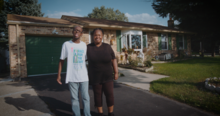
ProMedica and LISC team up to fund place-based investments in the hope of improving residents’ health. How do they do it?
Topics: Community development, Health, Housing, Place-based
 Shared by Housing Is
on Apr 23, 2019
Shared by Housing Is
on Apr 23, 2019 0
0
0
Displacement tracts are those showing strong economic expansion and a net decline in low-income population. Concentration tracts are those showing strong economic decline and a net increase in low-income population.
Topics: Community development, Low-income, Research
0
0
0
The goal of this report is to reveal those 21st century patterns of metropolitan change and development. Broadly speaking, this report analyzes neighborhood change, at a census-tract and metropolitan level, between 2000 and 2016. Its analysis includes the entire United States but focuses on the 50 largest metropolitan areas.
Topics: Community development, Research
0
0
0
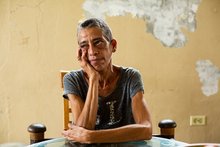
Puerto Rico was in financial distress and had crumbling infrastructure before Hurricane Maria, and many residents complain of government malfeasance that exacerbated the storm’s impact, echoing criticism from Washington. But Puerto Rican leaders say the delay to the Vieques hospital and thousands of other stalled projects is a reflection of unequal treatment from the White House and Congress, which last week failed to pass disaster relief legislation because of a dispute over how much money to send the island.
Topics: Community development, Food insecurity, Funding, Legislation & Policy, Low-income, Nutrition, U.S. Territories
 Shared by Housing Is
on Apr 15, 2019
Shared by Housing Is
on Apr 15, 2019 0
0
0
Community Land Trusts (CLTs) are nonprofit, community-based organizations that steward land for specific community purposes. They are used to expand and preserve low- and moderate-cost housing, sustain commercial and civic assets, and foster neighborhood engagement through stewardship of the land. Although typically used as an approach for shared equity homeownership, CLTs can also stabilize housing access, increase affordability, revitalize properties in disinvested communities, and enable renters to participate in community governance processes.
Topics: Community development, Housing, Low-income
0
0
0
While the program has changed very little since its inception, the need for the program has increased. In 1975, the number of program grantees stood at 594. Today, the number of grantees stands at 1,268 as more communities qualify to receive direct program allocations. Based on a CDBG Needs Survey conducted by the CDBG Coalition (and discussed later in this report), CDBG grantees have delayed and canceled projects and reduced or permanently eliminated programs because of a lack of CDBG funds. CDBG is an important investment tool for communities and neighborhoods, but program funding must...
Topics: Community development, Funding, Health, Homelessness, Housing, Legislation & Policy, Low-income, Partnerships, Research, Safety, Seniors
 Shared by Housing Is
on Apr 8, 2019
Shared by Housing Is
on Apr 8, 2019 0
0
0
We're creating the foundations of change. Together, we can provide more families with access to a safe place to live.
Topics: Community development, Housing, Legislation & Policy
 Shared by Housing Is
on Apr 8, 2019
Shared by Housing Is
on Apr 8, 2019 0
0
0
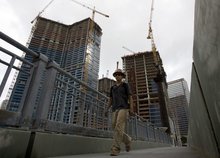
Building more affordable housing units in the metros that are centers of innovation will increase demand for the wares that fill houses, and increase productivity.
Topics: Asset building, Community development, Housing, Legislation & Policy, Research
 Shared by Housing Is
on Apr 4, 2019
Shared by Housing Is
on Apr 4, 2019 0
0
0

As Wilmington’s Riverside community embarks on an extraordinary revitalization effort, Christiana Care Health System is making an impact on health with a $1 million gift to REACH Riverside Development Corporation that will support community health and youth development programs.
Topics: Community development, Health, Housing, Low-income, Youth
 Shared by Housing Is
on Apr 4, 2019
Shared by Housing Is
on Apr 4, 2019 0
0
0
A shortage of affordable housing on this island territory has forced hundreds of families to remain in damaged and leaky houses during the lengthy recovery effort. The widespread destruction of hotels and public housing, combined with the flood of workers who have rushed to the islands to aid in rebuilding, have pushed rents higher, beyond the means of many disaster victims.
Topics: Community development, Housing, Low-income, Safety, U.S. Territories
 Shared by Housing Is
on Apr 2, 2019
Shared by Housing Is
on Apr 2, 2019 0
0
0

Community First! Village is built and run by the nonprofit Mobile Loaves & Fishes to lift the most chronically homeless off the streets and into a place they can call home. They live in about 100 RVs and 125 micro homes arranged on streets with names like "Peaceful Path" and "Goodness Way." Heavy machinery has broken ground on the neighboring 24 acres to add another 310 housing units. When complete, Mobile Loaves and Fishes believes it will be able to provide permanent homes for approximately 40% of the chronically homeless in Austin.
Topics: Community development, Homelessness, Housing, Place-based, South
 Shared by Housing Is
on Mar 28, 2019
Shared by Housing Is
on Mar 28, 2019 0
0
0
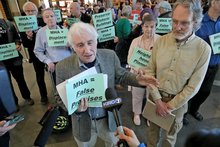
Taller buildings in the hearts of more than two dozen neighborhoods, denser housing on some nearby blocks and requirements that developers help create affordable housing. That’s what Seattle is getting after the City Council voted unanimously Monday to approve some of the most sweeping zoning changes in the city’s recent history.
Topics: Community development, Housing, Legislation & Policy, Low-income
0
0
0
To equip municipalities with the skills and tools to address these challenges, New York State created the $12 million Cities for Responsible Investment and Strategic Enforcement (Cities RISE) program, which provides leadership, management, and technical support to help 16 municipalities address deteriorating homes, vacant properties, and neighborhood decline through strategic code enforcement. Cities RISE uses code enforcement strategies to advance broader community development goals, and, in doing so, helps municipalities align programs aimed at improving residents’ quality of life.
Topics: Community development, Data sharing, Homelessness, Housing, Legislation & Policy, Partnerships
 Shared by Housing Is
on Mar 26, 2019
Shared by Housing Is
on Mar 26, 2019 0
0
0
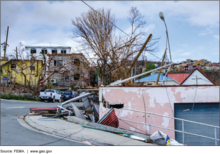
Use of the $35 billion in federal Community Development Block Grant Disaster Recovery funds for the 2017 hurricanes has been slow. Over a year after the first funds were appropriated, much of the money remains unspent because grantees in Florida, Puerto Rico, Texas, and the U.S. Virgin Islands are still in planning phases. Also, the Department of Housing and Urban Development doesn't have the review guidance and monitoring plans it needs for good grantee oversight. We recommended ways to improve the oversight of disaster funding and better meet disaster recovery needs.
Topics: Community development, Funding, Housing, Legislation & Policy, Research, Safety, U.S. Territories
 Shared by Housing Is
on Mar 26, 2019
Shared by Housing Is
on Mar 26, 2019 0
0
0
After working with 37 communities across the country over the last three years to drive sustainable improvements in community health we’ve we’ve seen how when specific approaches are implemented, namely Bold, Upstream, Integrated, Local, and Data-Driven approaches, meaningful change affecting the health of a community can happen. We’ve done our best to document the processes, the successes, and the failures along the way, and from those real-world experiences we’ve created a set of preliminary tools that can inform and guide those interested in learning about the unique BUILD approach.
Topics: Community development, Data sharing, Health, Partnerships
 Shared by Housing Is
on Mar 19, 2019
Shared by Housing Is
on Mar 19, 2019 0
0
0
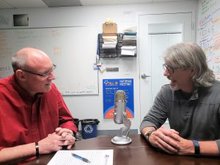
Asset-based community development (ABCD) is a large and growing movement that considers local assets as the primary building blocks of community development, social capital, and health and well-being. Ron Dwyer-Voss, MA, the Owner of Pacific Community Solutions, who also happens to be a long-time friend of podcast host Peter Eckart, joined the show to discuss how ABCD draws on existing strengths of local residents, associations, and institutions to build stronger, healthier, and more sustainable communities. He shared strategies, tools, and examples of how ABCD can be used to engage community...
Topics: Asset building, Community development, Health, Partnerships
 Shared by Housing Is
on Mar 19, 2019
Shared by Housing Is
on Mar 19, 2019 0
0
0
Although such a complex problem such as lack of affordable housing demands numerous solutions, modular construction looks promising, barreling toward a tipping point with a new generation of startups bringing a manufacturing mindset to multifamily construction.
Topics: Community development, Cost effectiveness, Housing, Low-income
 Shared by Housing Is
on Mar 15, 2019
Shared by Housing Is
on Mar 15, 2019 0
0
0

Kaiser is investing $200 million in low-interest loans for affordable housing nationwide. This may be part of a growing national trend of health maintenance organizations investing in housing to improve community health. In Phoenix, United Healthcare lent money to a community development corporation, Chicanos Por La Causa, to purchase apartment complexes for Medicaid recipients. In Chicago, the University of Illinois Hospital helps to find permanent housing for homeless people who regularly present at its emergency department.
Topics: Affordable Care Act, Community development, Health, Homelessness, Housing, Low-income, Partnerships, West Coast
0
0
0
Vacant properties, substandard housing, and neighborhood quality profoundly affect our health, education, and safety. Strategic code enforcement programs can serve as communities’ first line of defense for addressing deteriorating homes, vacant properties, and neighborhood decline. Strategic code enforcement programs organize critical assets, resources, and actions into a dynamic and adaptive system.
Topics: Community development, Data sharing, Funding, Health, Legislation & Policy, Partnerships
 Shared by Housing Is
on Mar 14, 2019
Shared by Housing Is
on Mar 14, 2019 
